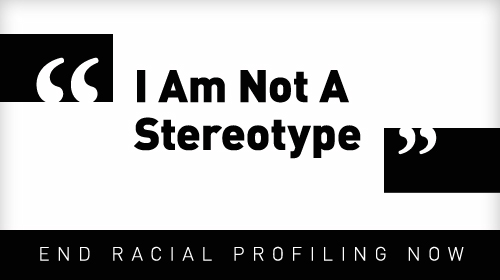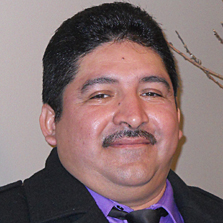
By Tiburcio Briceno, ACLU of Michigan client
Becoming a U.S. citizen was one of my proudest moments. I'll never forget the way that I felt raising my right hand and taking the oath to this country. I felt that I was part of something bigger than myself; I felt that I was a part of a community and that I was finally equal to every other American.

Tiburcio Briceno
That feeling was short-lived for me and my family. In February 2011, I confronted the harsh reality that many others in the Mexican-American community face — racial profiling. While driving a company van, I was stopped by a Michigan State Police officer. The officer said I had run a red light.
When the officer came to my car, I handed him my Michigan chauffeur's license, yet the officer was more interested in my immigration status. I repeatedly told him I was a citizen. He didn't care. He went to his car to look up my record and when he returned, he told me to get out of the car and that I was going to be deported. The officer had called Customs and Border Patrol. My car was impounded; I was handcuffed and driven to an empty parking lot to wait for CBP officers. I couldn't understand why this was happening to me. I felt worse than any criminal, because a criminal knows that when he's arrested it's because he's at fault. He knows he has to pay for something he did wrong. But I did nothing wrong. I'm not a criminal.
I pleaded with the officer to listen to me — to believe that I was telling the truth. "I am a citizen," I told him. But it didn't matter. I offered to show him my social security card. He refused to look at it. Finally CBP officers arrived. They looked at my record, confirmed that I was telling the truth and I was let go.
I never received a ticket for my traffic violation. I would have preferred that the officer just have issued me a ticket rather than interrogate me about my citizenship, call me a liar and threaten to kick my butt. The ticket would have been much easier to explain to my children than racial profiling.
I believe in the opportunities and dreams the U.S. represents. I believe in the promise of equality and justice for all. And as I thought more about this experience, I realized that I couldn't just ignore what happened because there are others just like me who are harassed, arrested and, at times, deported for no other reason than a police officer's perception of what a citizen should look like or sound like.
I came to the ACLU of Michigan for help and they sent a letter to Michigan State Police on my behalf asking for answers and an internal investigation. A few days later, I sat in the ACLU's office while the police's internal investigator asked me to tell my story. That was another proud day, because I knew that I had made a difference.
Although I still believe in the promise of equality, I know that I have to speak out to make sure it's a reality for me, my family and my community. No American should be made to feel like a criminal simply because of the color of their skin or language abilities.
This is the third of eight blog posts in the series "I Am Not a Stereotype: End Racial Profiling Now," on ACLU's Blog of Rights.
Take action. Stop what happened to Tiburcio from happening to anyone else again. Urge your member of Congress to pass the End Racial Profiling Act, legislation sponsored by Sen. Ben Cardin (D-Md.) and Rep. John Conyers, (D-Mich.) which would, among other things, provide training to help police avoid responses based on stereotypes and unreliable assumptions about minorities.
Learn more about racial profiling: Sign up for breaking news alerts, follow us on Twitter, and like us on Facebook.


